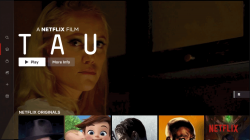Weekly News Roundup (September 23, 2018)
Welcome to another issue of the WNR. Many of you read this roundup via our newsletter, and if you do, you might have noticed that it was our 600th issue last week. There’s a pretty strong link between the newsletter and this WNR, as both became regular features at around the same time, some 11 years ago. To put that into perspective, when the WNR first started, the iPhone was only a couple of months old. That’s the original iPhone, the one without any numbers (or now, Roman numerals/letters) after it. 2007 was also the year that Netflix started their streaming business.
So suffice to say, a lot of things have changed since then. But as you’ll find out in this WNR, some things stay the same.
![]()
So 11 years later, DRM is still around and still a pain in the you know what. It used to be the controversial SecuROM that was causing all sorts of problems like constant reactivations, rootkits, these days it’s Denuvo with its potential performance problems. But publishers, just like back then, don’t care too much about the problems DRM like Denuvo and SecuROM bring, not if it protects their games. At least in Denuvo’s defence, it does actually work, for a while. That “for a while” is getting shorter and shorter though, and a new batch of games with the latest Denuvo version has just been cracked.
It’s kind of sad that publishers continue to use DRM even though there’s plenty of evidence that it’s actually making for a poorer user experience for their products, like how framerates for ‘Mass Effect Andromeda’ went up by 12%, in one test, after an official patch removed Denuvo protection from the game recently. There’s is also the negative PR for when a game is announced to use Denuvo, and that may even translate to lost sales.
But you take a look at ‘The Witcher 3’ from the one major publisher who is staunchly anti-DRM, and you look at its sales, and you wonder, is DRM really needed? Despite gamers knowing that the game, being DRM free, would be instantly piratable, 1.5 million people still chose to pre-order the game. And even after release (and after the pirated version was floating freely online), 6 million more copies were sold in the first six weeks. And the game continued to sell well two years after release, with sales in 2017 outnumbering that from 2016 – and all the while, the game was DRM-free and pirated everywhere. This made the ‘Witcher’ series more popular, sales wise, than the likes of ‘Fallout’, ‘Borderlands’, and the entire ‘Batman’ franchise.
The ‘DRM-free’ equals ‘piracy’ equals ‘lost sales’ equation doesn’t seem to compute.
![]()
The SVOD marketplace is getting very competitive. Even though Netflix has a huge share of the market, other players like Amazon, and here in Australia, Stan, are all vying for a slice of the, admittedly still growing, pie. This means that it’s more important than ever for SVOD platforms to be able to stand out from the crowd, to offer something unique. And plain old original content isn’t enough, increasingly, SVOD platforms are now offering localised original content.
Take Australia for example, the local SVOD outfit Stan has already released several original Australian series and even a movie, while Netflix has one in the works as well. And from Netflix, here in Australia, we can watch series from China, Brazil, Spain, France and many other countries.
And apart from unique content, there’s also the need to constantly improve the user experience. The apps for most streaming platforms are already pretty slick, but there are always room for improvement (even if it simply means removing certain features that are no longer useful, such as user reviews and star ratings).
Improvements to playback quality, in terms of 4K UHD, Dolby Vision, Dolby Atmos, and soon, HDR10+ are also an important way to keep things fresh.
======
And on that note, we come to the end of another WNR. I have no idea what issue this one is, since I haven’t been using issue numbers with the WNR. Probably somewhere just north of 500, is my guess. See you next week!


